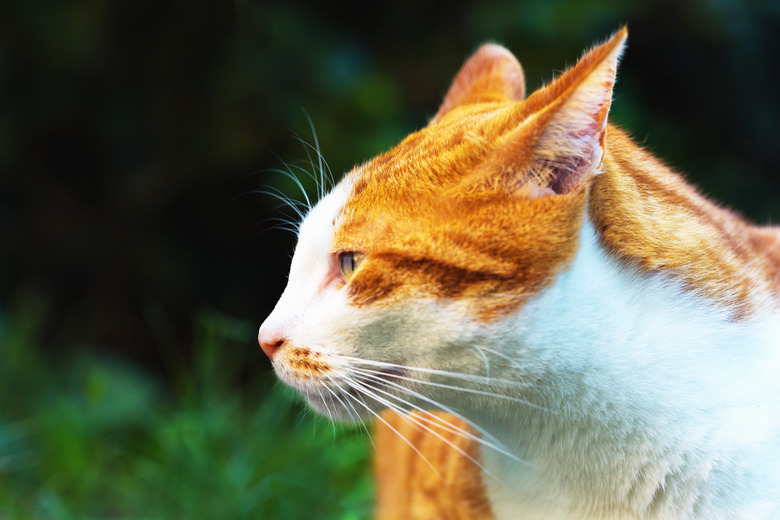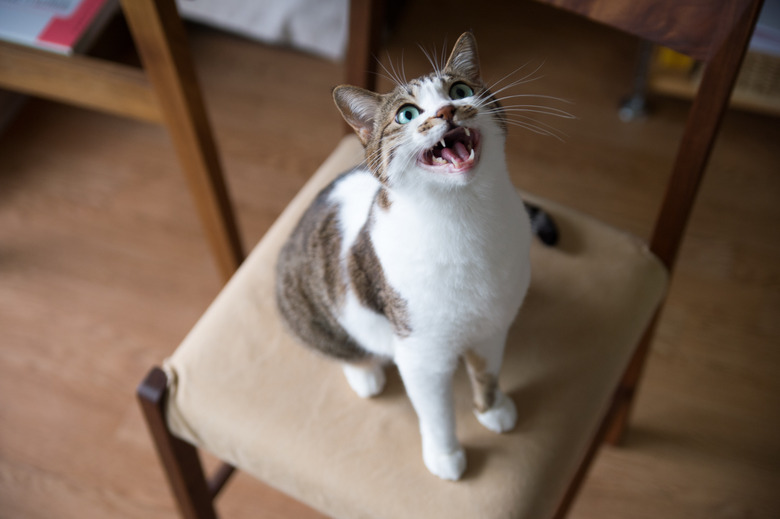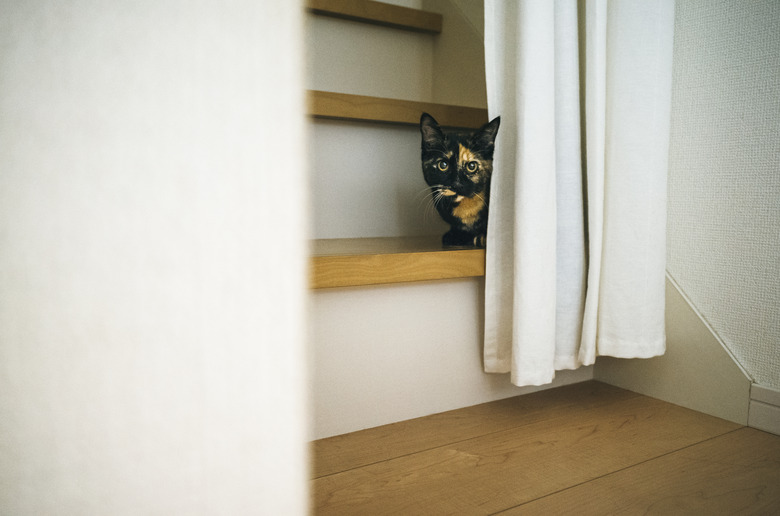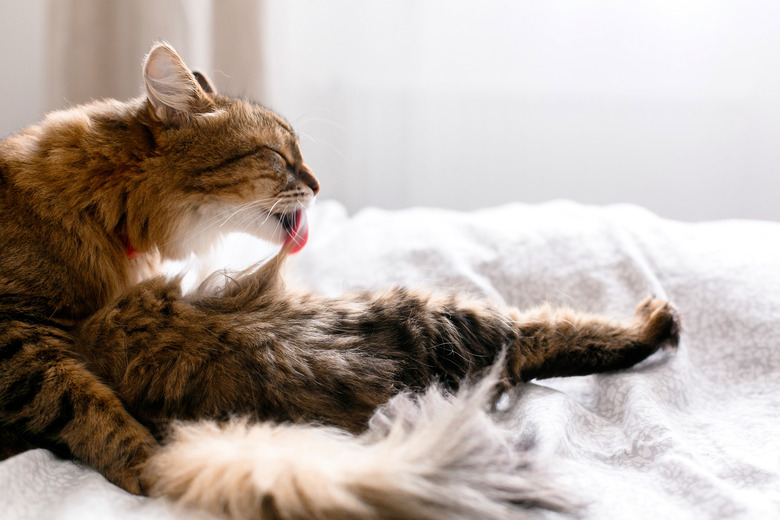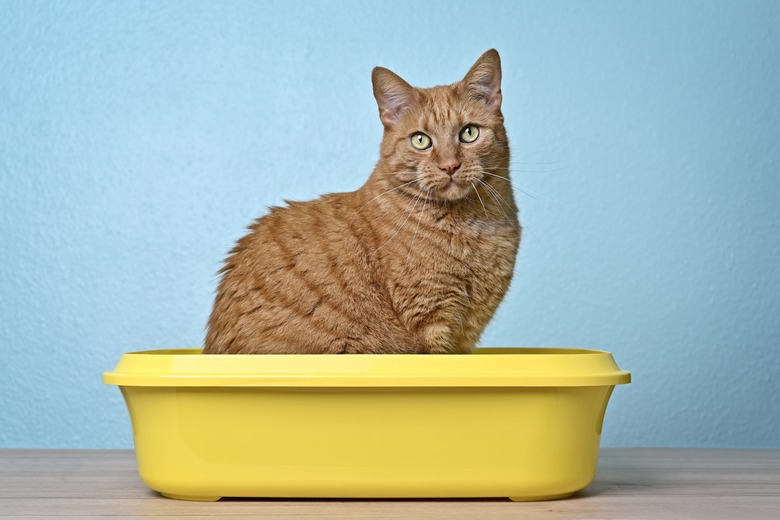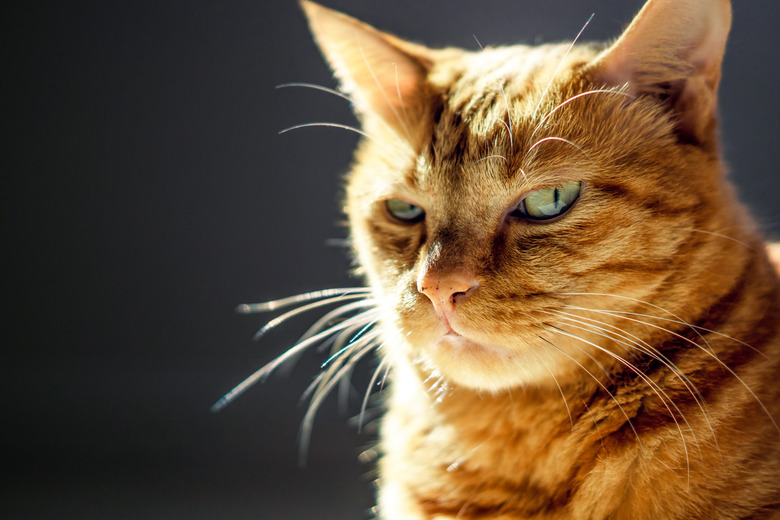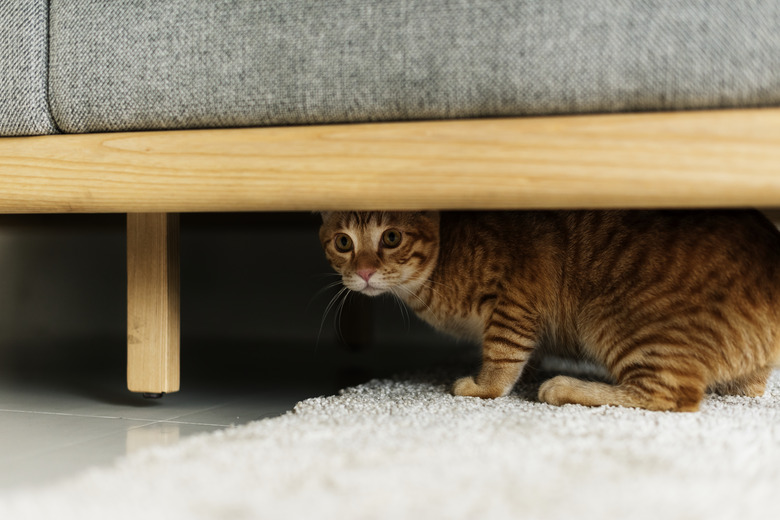7 Signs Your Cat Is Stressed: What To Do And When To See A Vet
Has your cat been acting differently than usual? Shifts in your cat's behavior and/or temperament can be an indication that your cat isn't feeling well or is stressed. Although these behavior changes can be frustrating to cat guardians, your cat isn't trying to irritate you, they are trying to communicate signs of stress.
Sources of stress for cats include the addition of a new family member, including new pets, new babies in the home, loud noises, or changes in daily routines. Here are 7 common behaviors that are signs of cat anxiety and indicators that your cat is experiencing stress.
1. Flattened ears
1. Flattened ears
Cats use their body language to communicate their feelings about stressors in their environment. One of the best ways to know if your cat is stressed is to watch for stressed body language and your cat's behavior. Symptoms of stress visible on your cat's body include flattened ears, a hunched or tense body, and dilated pupils.
2. Excessive vocalizations
2. Excessive vocalizations
Pay attention to your cat's vocalizations. If your cat begins meowing, yowling, or crying, it's often a sign of discomfort or stress, especially if this is an unusual or new behavior for them. Don't scold or punish your cat for crying or chatting at you. Instead, pay attention to your cat's vocalizations. Listen to how they sound, and do your best to make a note of when and where they occur, and any other patterns that stand out to you. This information can help your veterinary care team get to the bottom of your cat's behavior.
3. Acting withdrawn
3. Acting withdrawn
Cats who are stressed will often become withdrawn. These cats will stop or limit their engagement with things and people they have previously enjoyed or been close to. If your cat is avoiding people or other pets in the home, or no longer wanting to play, that's a sign your cat is experiencing stress.
4. Excessive grooming
4. Excessive grooming
Cats naturally groom themselves as part of their daily routines, but when a cat is stressed, they may begin over-grooming. Some stressed cats will excessively groom to the point of causing hair loss or leading to sores developing on their skin. (See below for more information on what to do, but excessive grooming to the point of hair loss or sores is definitely cause for a vet visit as soon as possible.)
5. Change in litter box habits
5. Change in litter box habits
Litter box issues are a common challenge for stressed cats. If your cat starts to urinate or defecate outside of the litter box, or begins spraying urine or urinating in unusual places other than the litter tray, this could be a sign that your cat is upset or stressed about something.
6. Irritability
6. Irritability
If your cat has suddenly started getting irritable, or even aggressive towards you, visitors, or other animals in the home, that behavior can be a sign that your cat is feeling stressed and uncomfortable. Symptoms to watch for include hissing, scratching, and biting.
7. Hiding
7. Hiding
If your cat is hiding more than usual, it's a good indicator that your cat is stressed or uncomfortable. This is especially true if your usually social cat is unwilling to come out of their hiding place to engage with you.
One thing to note: in general, it's normal for a newly adopted or newly rehomed cat to hide for a bit, and to be stressed at first. If your new cat is hiding, don't force anything on them. Just leave food and water where they can access them, and let the cat come out on their own time.
What to do if your cat is stressed
What to do if your cat is stressed
If you think that your cat is struggling with stress or has any kind of behavior changes, it's important to first schedule an appointment with your cat's veterinarian. A veterinarian will be able to give your cat a full exam and determine if your cat has any health issues that might be contributing to the behavior you are seeing.
In addition, and once you have more information from your vet, it's important to find ways to decrease the stress in your cat's life. Consider introducing stress-relieving cat pheromone products/diffusers like feliway into your home to help your cat relax. Other strategies for reducing your cat's stress include providing more litter boxes, making sure your cat has access to opportunities to climb like cat trees and indoor window perches as having height can make cats feel safer. If there are other animals in the home, be sure your cat has a safe, private place they can go in case proximity to those animals is causing stress. You can also increase playtime with your cat, and provide food puzzles and other enrichment activities, which can help reduce stress levels.

